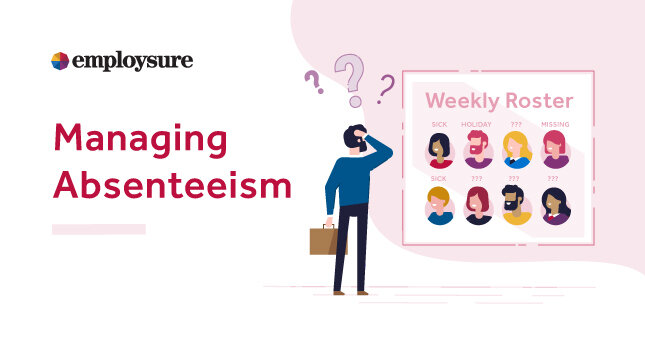
Managing Absenteeism
Absenteeism costs New Zealand businesses $1 billion every year. What are the causes, and more importantly, what can employers do about it?
What Is Absenteeism At Work?
When an employee is not present at work for a prolonged and habitual time during a normally scheduled work period, without warning or reason, this is considered absenteeism. This doesn’t include ‘excused absences’ such as annual leave, sick leave or medical appointments, family activities and emergencies, community service leave and more.
Where you suspect employee absenteeism, communication is vital and all attempts, whether they are successful contact or not, it must be documented.
What Are The Common Causes Of Absenteeism?
The issue of absenteeism is difficult to manage as it can be due to a number of reasons and may be an indication of something bigger going on in an employee’s life. Common causes can include:
Bullying and harassment
Burnout, stress and low morale
Childcare and eldercare
Mental or Physical illness
Job dissatisfaction
Injuries
Job hunting
What Can You Do To Manage Absenteeism?
Create an official employee attendance policy, and enforce it consistently
Record employee absences, and document all attempts to contact absent employees
Reward and recognise engaged employees with high attendance
Address the situation upon the absent employee’s return and inform them of attendance expectations. Also let them know if their absence has triggered any disciplinary action. Again, document everything.

Get Workplace Advice Now
Call Our Team of Expert Advisers Who Will Help You with Your Workplace Questions.
